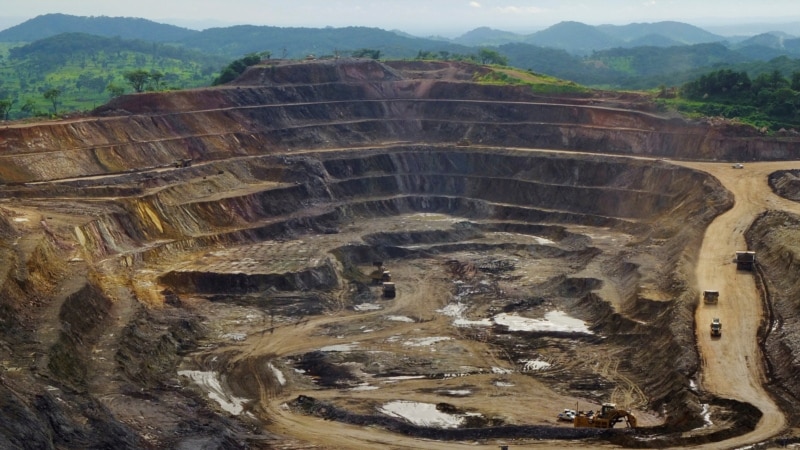A report by the Washington-based United States Institute of Peace (USIP) says the United States must refine its Africa policy with a focus on critical minerals, including strengthening its diplomatic and commercial presence in Africa’s mining hubs.
The group said the changes were needed to prevent export controls and market manipulation by geopolitical rivals.
The United States relies heavily on imports of many critical minerals used in electric vehicle batteries and other applications, such as cobalt, graphite and manganese.
“Of particular concern is the fact that the United States has become or is close to 100 percent dependent on ‘foreign related entities’ – primarily the People’s Republic of China – for critical minerals,” the USIP report said.
Despite efforts by the Biden administration and Congress to support U.S. companies’ entry into African markets, progress remains slow and there is no sign that competitors from China and Gulf states are retreating. The US Intellectual Property Office report recommends that the US government invest in “commercial diplomacy” in Africa.
For example, Washington should prioritize fully realizing the potential benefits of the Belt and Road Initiative. memorandum of understanding After the US-Africa Leaders’ Summit in December 2022, agreements were signed with the Democratic Republic of Congo (DRC) and Zambia to jointly develop an electric vehicle battery supply chain.
The Democratic Republic of Congo produces more than 70% of the world’s cobalt, while Zambia is the world’s sixth-largest copper producer and Africa’s second-largest cobalt producer.
The USIP report also recommends that the United States increase the physical presence of diplomatic and commercial officials in mining hubs. Given the Congolese city of Lubumbashi’s proximity to critical minerals and the high priority given to the country’s Lobito Corridor, USIP recommended reopening the U.S. Consulate in Lubumbashi with acceptable security levels.
In the mid-1990s, after the end of the Cold War and the realignment of interests and resources, the United States closed its consulate in Lubumbashi. Lubumbashi is the capital of the mineral-rich Katanga province and the second largest city in the Democratic Republic of Congo.
Congolese state mining company Gécamines and other mining companies are headquartered in the city.
Other policy recommendations include prioritizing and leveraging existing USAID programs to assist Africans in rule of law and fiscal transparency efforts, expanding the membership of the Mineral Security Partnership to include African partners, and assisting African countries in building technical capacity in the mining industry .
Launched in June 2022, the Mineral Security Partnership (MSP) is a collaboration between 14 countries and the European Union to promote public and private investment in responsible critical minerals supply chains around the world.
U.S. official says MSP members Accounting for more than 50% of global GDP and currently operates 23 projects involving the extraction and processing of cobalt, copper, gallium, germanium, graphite, lithium, manganese, nickel and rare earth elements.
“We need to expand our critical minerals supply chains to deploy clean technologies faster and more efficiently,” U.S. Secretary of State Antony Blinken told the MSP Forum in Leuven, Belgium earlier this month. “Demand is rising. By 2040, the demand for lithium is expected to increase by more than 40%. The demand for graphite, cobalt, and nickel is expected to increase by 20 to 25 times.”
Follow us on Google news ,Twitter , and Join Whatsapp Group of thelocalreport.in
